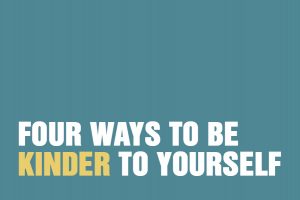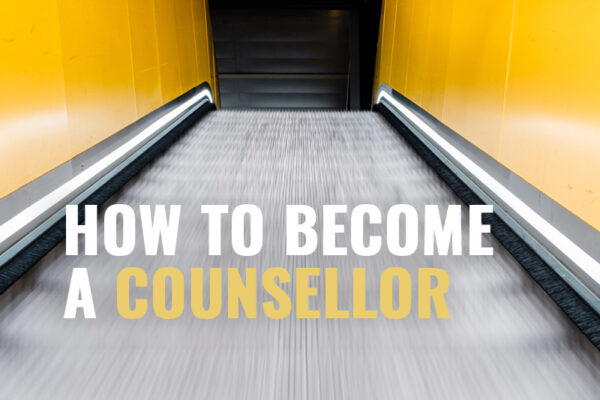Workplace bullying is very topical at the moment due to the emerging horrors of the Weinstein case, but it is not just a showbiz phenomena and happens in any and every working context. National Anti-bullying Week starts on November 13, so here is a guide on how to deal with bullying if it is happening to you now, and some advice on how to deal with the long-term effects of childhood bullying.
How to deal with being bullied now
Bullying in the workplace can turn a dream job into a thing of fear and dread. Having to deal with unfairness, manipulation, coercion and intimidation at work from a boss or colleague can leave you feeling very insecure and constantly on edge and, in some more severe cases, terrified and terrorised.
1. Understand the Bully Mechanism
It is generally assumed that bullies have low self-esteem and use this behaviour to make them feel more powerful. But, in reality, most bullies have very high self-esteem, and their bullying is a reaction to shame. They bully in an attempt to avoid any bad feelings they might have about themselves or facing up to their feelings of shame. So, for example, if a situation in which they might feel shame arises, such as looking incompetent at work, they will go into bullying mode and attack others.
2. Understand your own reaction
Bullies target more sensitive people because they recognise their insecurities and know how to capitalise on that and make them feel more insecure and ashamed. So the people picked on by bullies tend to be sensitive souls whose natural response to being bullied is to feel shame and blame themselves. This self-blaming is what keeps you trapped in the bully-victim relationship, so you need to unlearn this response and think about what is going on objectively without automatically thinking it must be your fault.
3. Don’t withdraw
The instinct to hide your feelings about being bullied from others, even to an extent from yourself, is a very natural response to bullying, but it is this tendency to push things down that can lead to depression later. Resist the temptation to hide what is going on from yourself and others and talk about it as openly as you can. Ask people in the office/workplace what their experience of your bully is, if they have noticed their behaviour, and how it makes them feel. This will pave the way for your sharing your own experience of it and feelings about it.
4. Do not respond in kind
Diminishing others is how a bully keeps their own sense of inadequacy out of their conscious awareness. If you fight fire with fire and do the same back to them, the bully will focus on your wrongdoing, and completely miss the fact that what you did was provoked by their actions.
5. Repackage
Attacking others blots out the shame felt by a bully, it also gives them an experience of power. They ridicule or diminish others as a way of trying to raise themselves up. But they do this unconsciously and are not aware of how bad they feel about themselves. Once you understand that the bully acts this way as a response to his or her own shame, you can repackage this to target their vulnerabilities. If you can help them to address their hidden feelings this will remove their need to attack you. So for example you can calmly say something like: “perhaps you feel could have handled x better, but I think you did really well in the circumstances”.
6. Present a United Front
Talk to your colleagues about what is happening, unite with them, and hopefully this will stop you from feeling isolated with what is going on and you will be able to get some support from the group. More importantly, if you discuss the bully’s behaviour with your co-workers, then slowly this behaviour will become known about, exposed, and this diminishes the power the bully will feel they have over you.
How to deal with the effects of historical bullying
Bullying is often viewed as a difficult, but harmless rite of passage or an inevitable part of growing up, but it can have lasting effects. Recent research looking at the long-term psychological effects of bullying showed that people who were bullied as children had a greater risk for depression, anxiety, suicidal thoughts, low-self esteem, panic disorder and agoraphobia as adults.
Our counsellors report that the psychological damage created by bullying doesn’t just go away because a person has become an adult and made their own life in which they are no longer bullied. Bullying is an experience that can stay with people, but if they can address it now, a whole host of problems can be aired, dealt with and prevented from creating deeper problems further down the road.
Break the cycle
Bullying creates a cycle of victimisation that can continue into adulthood and infiltrate practically every part of your life. So the first step is to undo this feeling that it is just a normal part of life: it isn’t. The second is to recognise that you might have felt/still feel that this was in some way your fault: It wasn’t.
Neither of these two realisations will come in an instant, undoing the effects of bullying as a child or adolescent is not an overnight thing, but if you try to bring those things to your awareness, it will enable you to break the cycle and begin to undo some of the remaining toxic effects of the bullying.
If you feel ready to talk about the bullying you experienced as a child, or are being bullied by a colleague now and need some support, we have experienced psychotherapists and counsellors who will be able to help. Call 020 8673 4545 or email [email protected]







